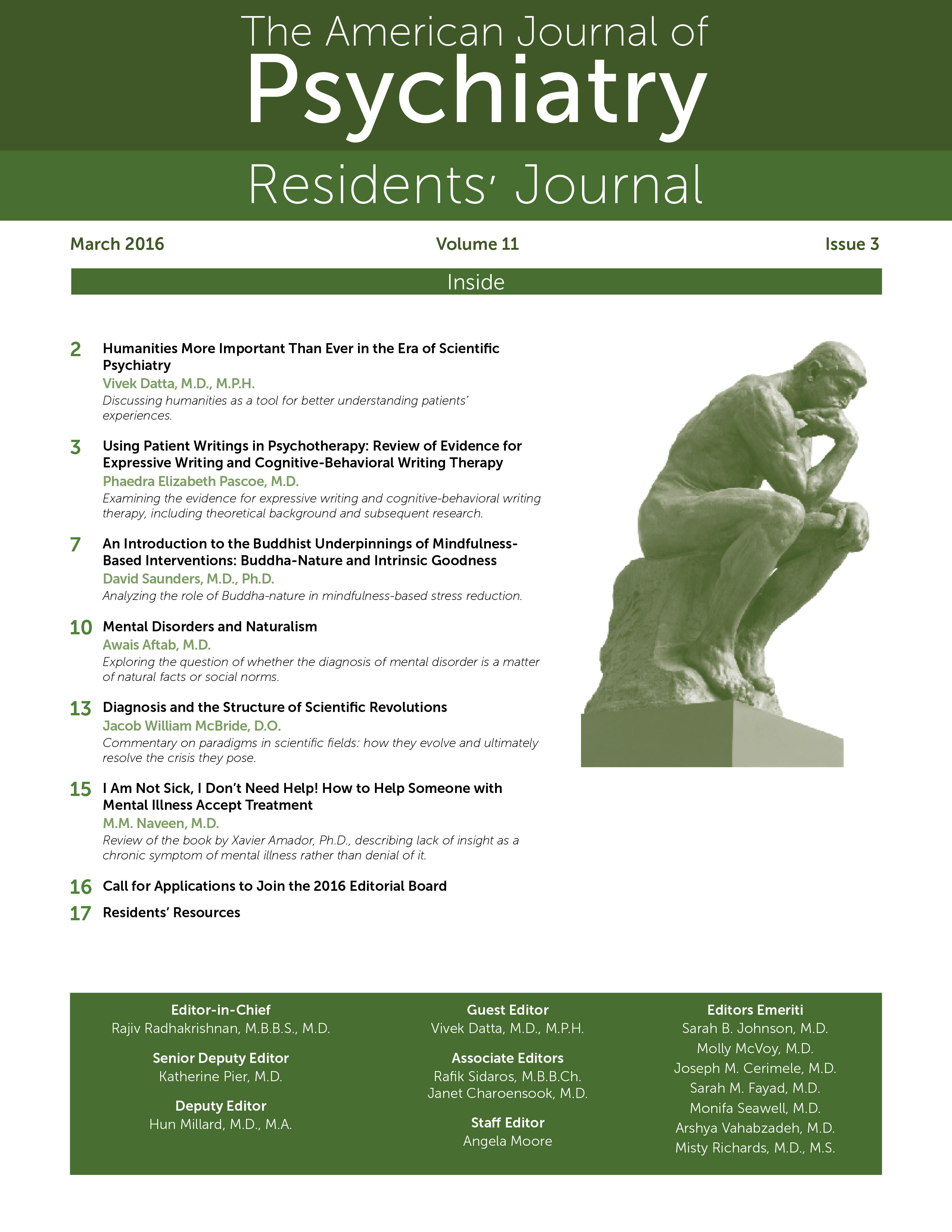One of the central questions in the philosophy of psychiatry is whether the diagnosis of mental disorder is a matter of natural facts or social norms (
1). The debate exists as part of a larger debate on the concept of “disease,” which is relevant to all of medicine (
2). Naturalism (or objectivism) maintains that concepts of health and disorders are predominantly driven by objective natural categories of biological function and dysfunction, which may interact with social values and norms but exist independently of them (
3). A naturalist view of disease maintains that a harmful departure of organ systems from “natural functions” constitutes “disease.” All naturalists contend that the determination of biological dysfunction is an objective scientific matter; some naturalists (such as Boorse) argue that determining whether a malfunction is detrimental to human well-being is also an objective matter, but most naturalists (such as Wakefield) concede that it is determined by normative considerations (
2). The opposing philosophical position is constructivism (or normativism), which argues that the disease concept is normative and denies that a biological dysfunction can be identified independently of human values. For naturalists, diseases are objectively malfunctioning biological processes that cause harms; while for constructivists, diseases are harms with an associated biological process that is identified as dysfunctional only because it causes that harm (
2). There are others who belong to neither camp who argue that there is no general concept of disease in medicine coherent enough to be analyzed (
4) or that a conceptual understanding of disease is irrelevant to most clinical decisions (
5). While the development of medicine has benefitted tremendously by a focus on discrete disorders underpinned by specific pathologies with specific treatments (
6), these developments are still amenable to a constructivist account, and naturalism by itself is a post hoc philosophical account with little prospective utility in the development of medical specialties.
Problems With Mental Disorder
DSM-5 states that in the absence of clear biological markers, it is not possible to identify boundaries for pathology based on symptomatic criteria alone, and therefore the criterion for clinically significant distress or disability is utilized (
16). This criterion conceptually conflates pathology with disability, which is problematic from the point of view of naturalism.
In the DSM-5 definition, the clinical syndrome constituting mental disorder is considered to be reflective of a psychological/biological/developmental dysfunction, but the diagnostic criteria for the vast majority of mental disorders are clinical with no reference to underlying biological/psychological processes. (There are some exceptions; for example, diagnostic criteria for narcolepsy include low CSF hypocretin levels, and frontotemporal neurocognitive disorder requires imaging or genetic support, etc.)
Boundaries of mental disorders as defined by DSM are subject to human interests given the criterion of clinical significance, making it difficult for them to correspond to the natural world (
16). “Clinical significance” is a universal characteristic of mental disorders in the DSM; however, it is not explicitly defined (although DSM-5 encourages the use of the World Health Organization Disability Assessment Schedule and information from family members and third-parties for the purpose) (
16). Bolton (
12) explains that a study of the literature surrounding the development of DSM reveals that it refers to the idea that the kind and severity of the condition is such that these problems are brought to psychiatric attention (
17,
18). He notes: “[T]he idea behind these expressions is the recognition that the conditions listed in the manuals … are the kinds of problems people bring to the clinic” (
12, p. 13). This raises important philosophical considerations with regard to “folk psychiatry” (
19) and the social organization by which these problems are brought to psychiatric attention rather than elsewhere.
Problems With Naturalism
The primary challenge for naturalism is the problem of establishing a satisfactory objective, scientific distinction between normal and abnormal human functioning, and this becomes even more problematic when it comes to issues of mental health and mental disorders. As we have discussed, none of the leading naturalist accounts of mental disorders are satisfactory. Furthermore, aside from psychiatry, there are a number of medical disorders, such as chronic fatigue syndrome, fibromyalgia, irritable bowel disease, and tension headache, that share problems similar to those in psychiatric disorders with regard to absence of clear biological markers and lack of well-defined underlying biological dysfunction (
20), which does not fit in a naturalist account. In essence, many of the medical disorders cannot be adequately conceptualized in naturalistic terms, which questions the utility of naturalism, and the expectation that psychiatric disorders should conform to naturalistic accounts remains without sufficient justification.
